gardening
Magical character from Howl’s Moving Castle makes the leap from the anime world and into our hearts and homes.
Give someone a bag of chips and they can eat for a minute, but teach them to bag of chips….
Specially cultivated to bloom after they arrive at your home, these trees will provide sakura memories for years to come.
People in Japan are swooning after discovering the many talents of this foreign-born gardener who gave up his original nationality to become Japanese.
Adorable houseplant is a relative of the hot dog cactus.
With amazing outdoor eating spaces set on moss-covered grounds in the middle of the woods, this is a secret haven for lovers of nature and Studio Ghibli.
Once its life as a pencil is over, this innovative piece of stationery will colour your garden by blooming into a variety of edible plants.
So a friend and I have a debate about what happens at the end of the Studio Ghibli anime movie Castle in the Sky Laputa. As the credits roll, the floating island is seen drifting into space, which I, as is my simple-minded nature, take literally. On the other hand, my friend argues that the visuals are at least partly metaphoric, and that the mysterious landmass didn’t really escape Earth’s orbit (he also contends that my proposed Laputa/Space Dandy crossover/sequel is too silly to ever get made).
But while it’s likely Laputa director and creator Hayao Miyazai purposely chose to craft an ambiguous ending to the film, we do now know what happened to the island: it became this awesome hanging planter from anime retailer Benelic.
The concept of plant factories is not a new one. Especially in space-strapped Japan, the idea of a compact garden that can simulate a natural environment in a tight urban area is highly desirable.
Keystone Technologies is one Japanese company that has been constantly refining their LED garden technology. Currently they boast a system that can fit about a quarter acre’s worth of crops into a space of a hotel’s single-room, and that’s just the beginning.

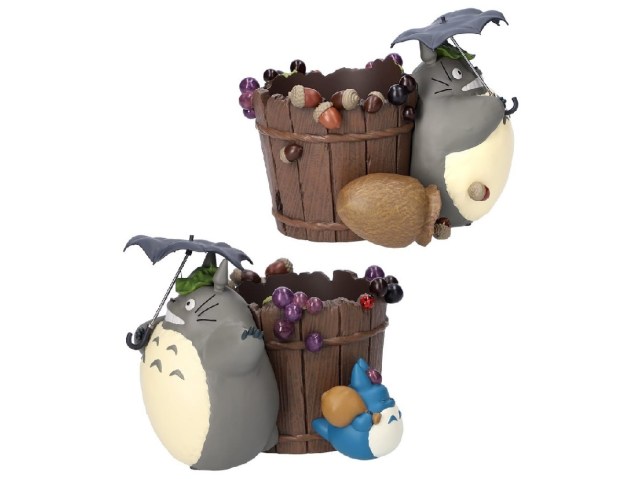
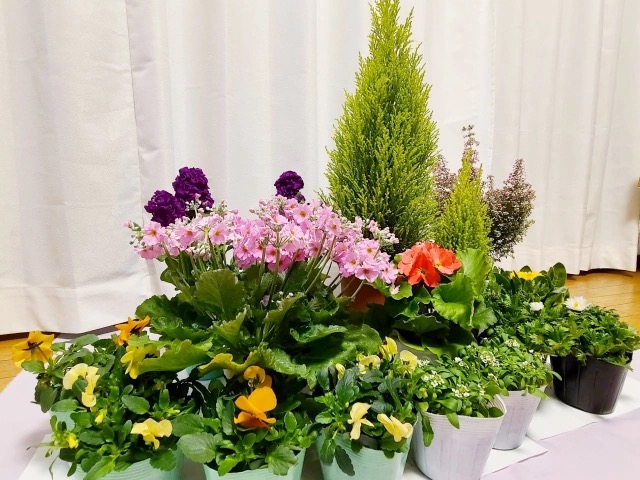
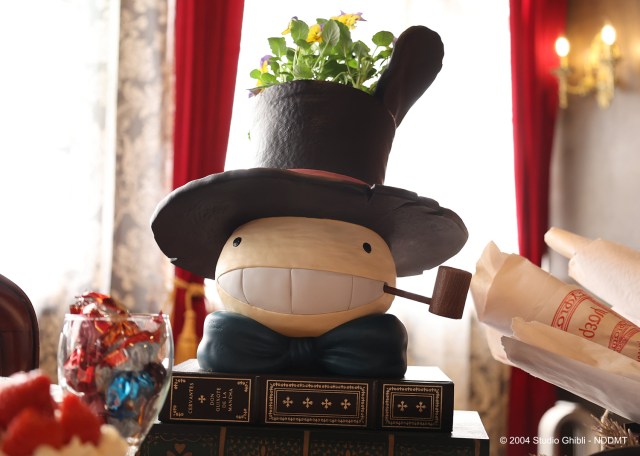
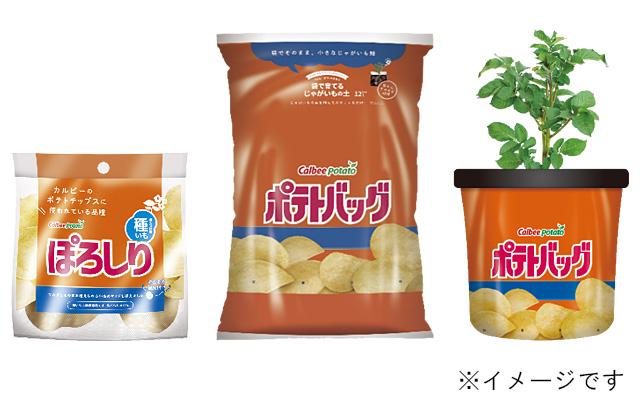
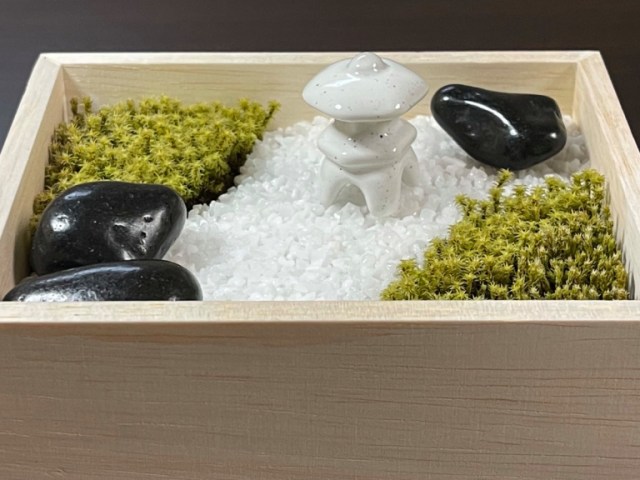
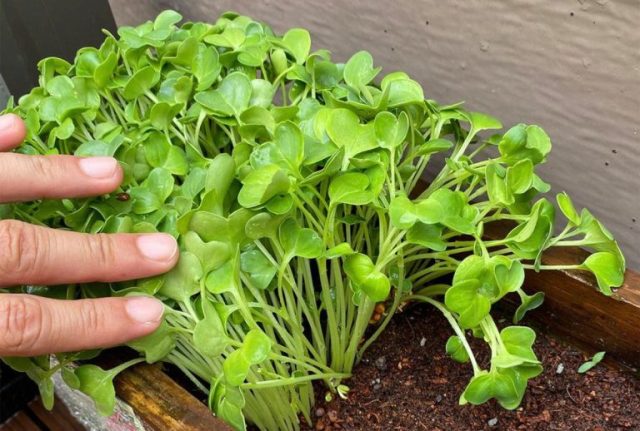
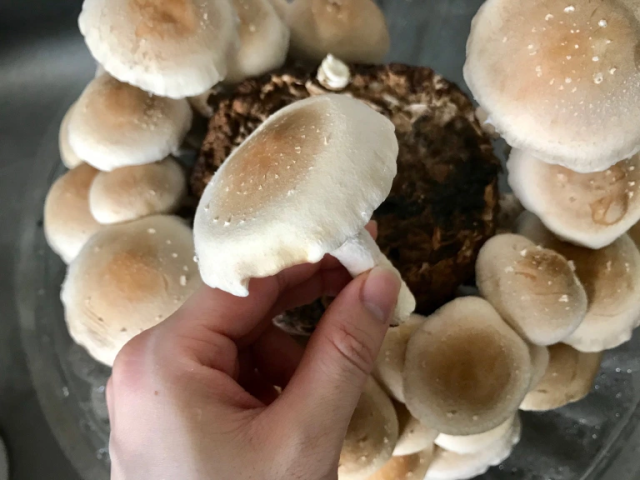
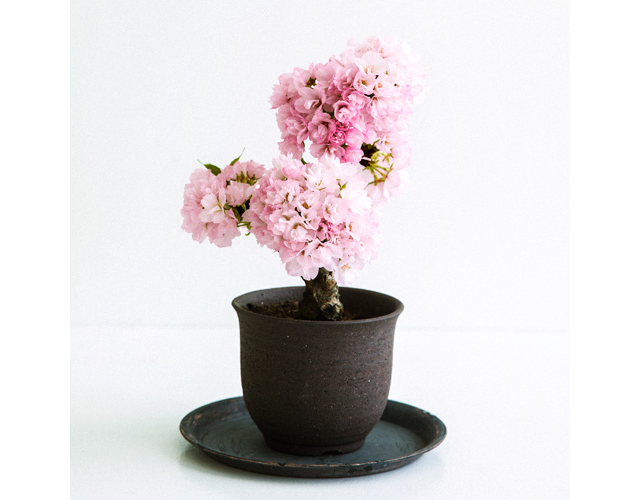
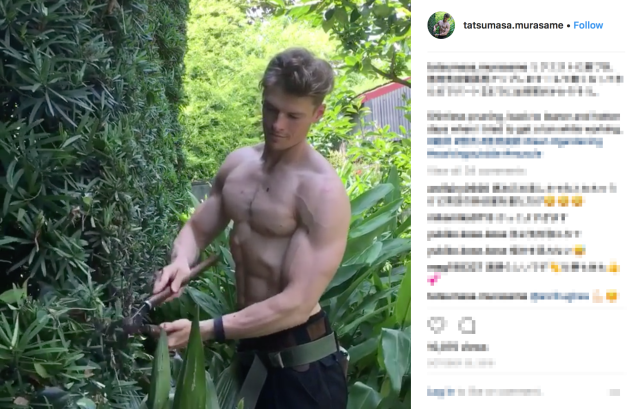
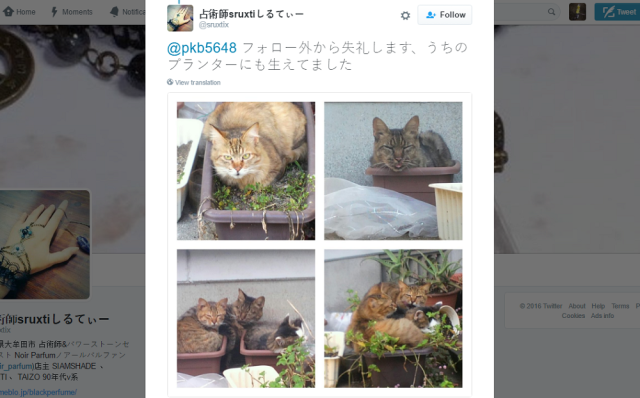
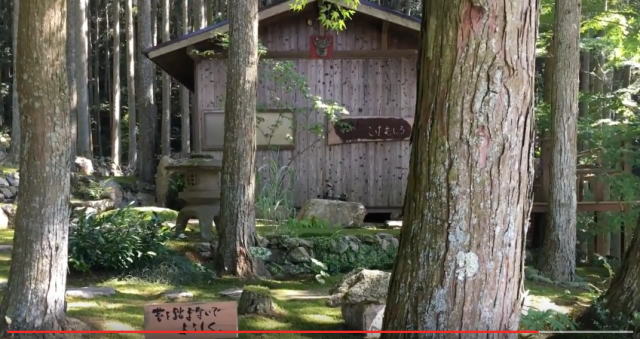
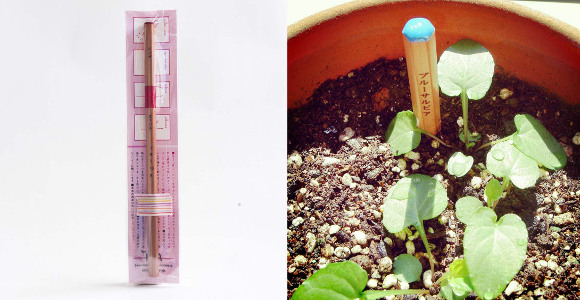
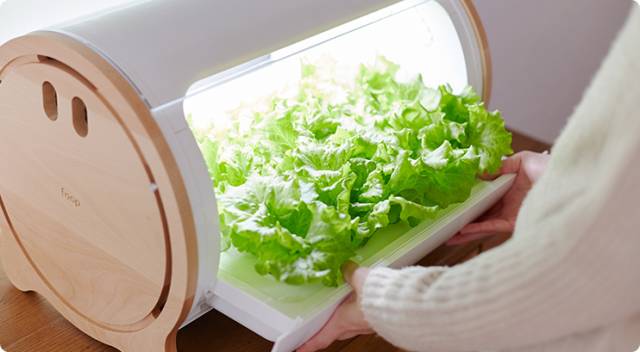
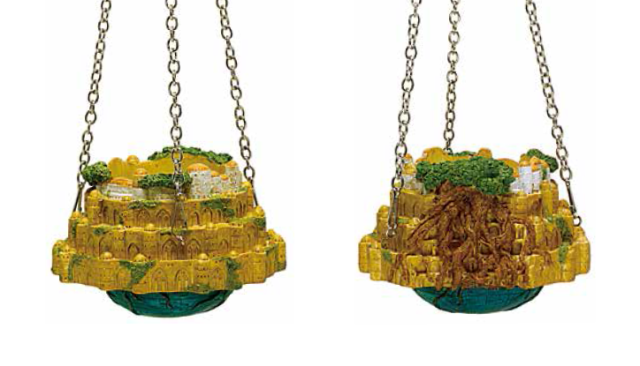
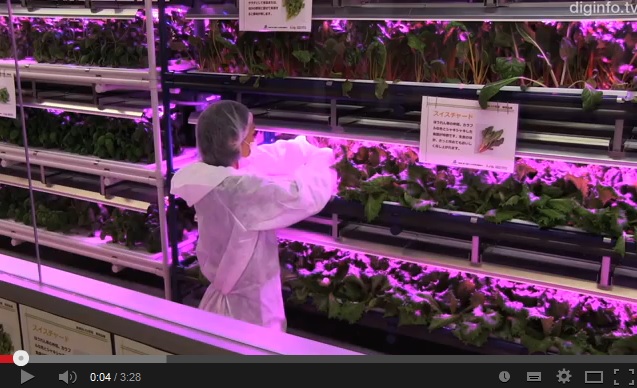
 Starbucks Japan releases first-ever Hinamatsuri Girls’ Day Frappuccino
Starbucks Japan releases first-ever Hinamatsuri Girls’ Day Frappuccino Japanese restaurant chain serves Dragon Ball donuts and Senzu Beans this spring
Japanese restaurant chain serves Dragon Ball donuts and Senzu Beans this spring Japan Extreme Budget Travel! A trip from Tokyo to Izumo for just 30,000 yen [Part 2]
Japan Extreme Budget Travel! A trip from Tokyo to Izumo for just 30,000 yen [Part 2] Potama serves up epic rice balls like no other, and there’s only one store in Tokyo
Potama serves up epic rice balls like no other, and there’s only one store in Tokyo Drift ice in Japan is a disappearing winter miracle you need to see now
Drift ice in Japan is a disappearing winter miracle you need to see now Can we be just like Shohei Ohtani on a budget with a Hello Kitty cap?
Can we be just like Shohei Ohtani on a budget with a Hello Kitty cap? This is Japan’s, and the world’s, first capsule hotel, and you can still stay there
This is Japan’s, and the world’s, first capsule hotel, and you can still stay there Kyoto planning surprise late-night inspections of Airbnb-style rentals to fight overtourism
Kyoto planning surprise late-night inspections of Airbnb-style rentals to fight overtourism Family Mart ups its convenience store food game with special burger from beef bowl chain Matsuya
Family Mart ups its convenience store food game with special burger from beef bowl chain Matsuya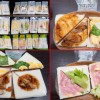 25 different Japanese convenience store sandwiches – What’s inside them?【Photos】
25 different Japanese convenience store sandwiches – What’s inside them?【Photos】 Highest Starbucks in Japan set to open this spring in the Tokyo sky
Highest Starbucks in Japan set to open this spring in the Tokyo sky Tokyo Skytree turns pink for the cherry blossom season
Tokyo Skytree turns pink for the cherry blossom season Yakuzen ramen restaurant in Tokyo is very different to a yakuza ramen restaurant
Yakuzen ramen restaurant in Tokyo is very different to a yakuza ramen restaurant Japan Extreme Budget Travel! A trip from Tokyo to Izumo for just 30,000 yen [Part 1]
Japan Extreme Budget Travel! A trip from Tokyo to Izumo for just 30,000 yen [Part 1] Japan has only one airport named after a samurai, so let’s check out Kochi Ryoma【Photos】
Japan has only one airport named after a samurai, so let’s check out Kochi Ryoma【Photos】 Japanese drugstore sells onigiri at pre-stupid era prices, but how do they compare to 7-Eleven?
Japanese drugstore sells onigiri at pre-stupid era prices, but how do they compare to 7-Eleven? Burning through cash just to throw things away tops list of headaches when moving house in Japan
Burning through cash just to throw things away tops list of headaches when moving house in Japan Starbucks Japan releases new sakura goods and drinkware for cherry blossom season 2026
Starbucks Japan releases new sakura goods and drinkware for cherry blossom season 2026 Japan’s newest Shinkansen has no seats…or passengers [Video]
Japan’s newest Shinkansen has no seats…or passengers [Video] Foreigners accounting for over 80 percent of off-course skiers needing rescue in Japan’s Hokkaido
Foreigners accounting for over 80 percent of off-course skiers needing rescue in Japan’s Hokkaido Super-salty pizza sends six kids to the hospital in Japan, linguistics blamed
Super-salty pizza sends six kids to the hospital in Japan, linguistics blamed Starbucks Japan unveils new sakura Frappuccino for cherry blossom season 2026
Starbucks Japan unveils new sakura Frappuccino for cherry blossom season 2026 Foreign tourists in Japan will get free Shinkansen tickets to promote regional tourism
Foreign tourists in Japan will get free Shinkansen tickets to promote regional tourism The 10 most annoying things foreign tourists do on Japanese trains, according to locals
The 10 most annoying things foreign tourists do on Japanese trains, according to locals Take a trip to Japan’s Dododo Land, the most irritating place on Earth
Take a trip to Japan’s Dododo Land, the most irritating place on Earth Naruto and Converse team up for new line of shinobi sneakers[Photos]
Naruto and Converse team up for new line of shinobi sneakers[Photos] Is China’s don’t-go-to-Japan warning affecting the lines at a popular Tokyo gyukatsu restaurant?
Is China’s don’t-go-to-Japan warning affecting the lines at a popular Tokyo gyukatsu restaurant? Survey asks foreign tourists what bothered them in Japan, more than half gave same answer
Survey asks foreign tourists what bothered them in Japan, more than half gave same answer Japan’s human washing machines will go on sale to general public, demos to be held in Tokyo
Japan’s human washing machines will go on sale to general public, demos to be held in Tokyo Starbucks Japan releases new drinkware and goods for Valentine’s Day
Starbucks Japan releases new drinkware and goods for Valentine’s Day We deeply regret going into this tunnel on our walk in the mountains of Japan
We deeply regret going into this tunnel on our walk in the mountains of Japan Studio Ghibli releases Kodama forest spirits from Princess Mononoke to light up your home
Studio Ghibli releases Kodama forest spirits from Princess Mononoke to light up your home Major Japanese hotel chain says reservations via overseas booking sites may not be valid
Major Japanese hotel chain says reservations via overseas booking sites may not be valid Put sesame oil in your coffee? Japanese maker says it’s the best way to start your day【Taste test】
Put sesame oil in your coffee? Japanese maker says it’s the best way to start your day【Taste test】 No more using real katana for tourism activities, Japan’s National Police Agency says
No more using real katana for tourism activities, Japan’s National Police Agency says Can we be just like Shohei Ohtani on a budget with a Hello Kitty cap?
Can we be just like Shohei Ohtani on a budget with a Hello Kitty cap? This is Japan’s, and the world’s, first capsule hotel, and you can still stay there
This is Japan’s, and the world’s, first capsule hotel, and you can still stay there Kyoto planning surprise late-night inspections of Airbnb-style rentals to fight overtourism
Kyoto planning surprise late-night inspections of Airbnb-style rentals to fight overtourism Family Mart ups its convenience store food game with special burger from beef bowl chain Matsuya
Family Mart ups its convenience store food game with special burger from beef bowl chain Matsuya 25 different Japanese convenience store sandwiches – What’s inside them?【Photos】
25 different Japanese convenience store sandwiches – What’s inside them?【Photos】 Behold the cycle of life with new Japanese plushie sets depicting the food chain and more
Behold the cycle of life with new Japanese plushie sets depicting the food chain and more Highest Starbucks in Japan set to open this spring in the Tokyo sky
Highest Starbucks in Japan set to open this spring in the Tokyo sky Majority of Japanese mayors say foreign residents are essential but most see good and bad effects
Majority of Japanese mayors say foreign residents are essential but most see good and bad effects Kyoto restaurant train reveals a different side of Japan not often seen by foreign tourists
Kyoto restaurant train reveals a different side of Japan not often seen by foreign tourists Japan Extreme Budget Travel! A trip from Tokyo to Izumo for just 30,000 yen [Part 1]
Japan Extreme Budget Travel! A trip from Tokyo to Izumo for just 30,000 yen [Part 1] Japan’s craziest burger chain takes menchi katsu to new extreme levels
Japan’s craziest burger chain takes menchi katsu to new extreme levels